
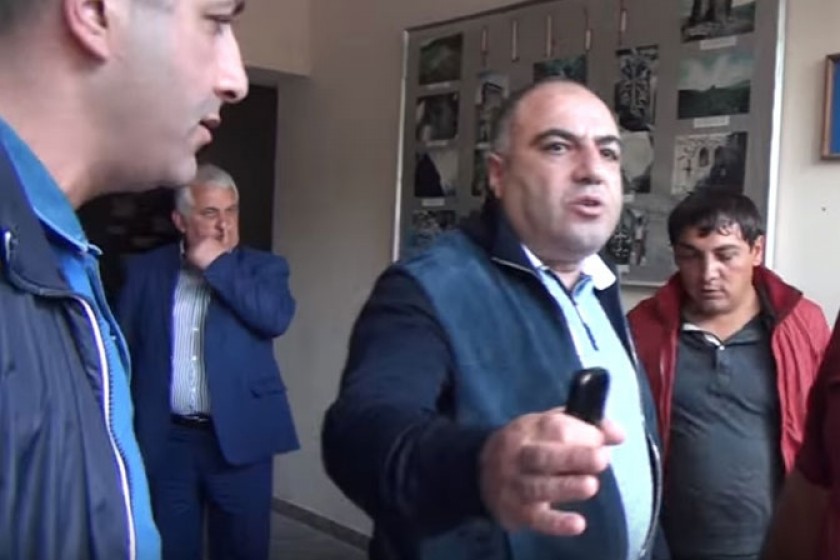
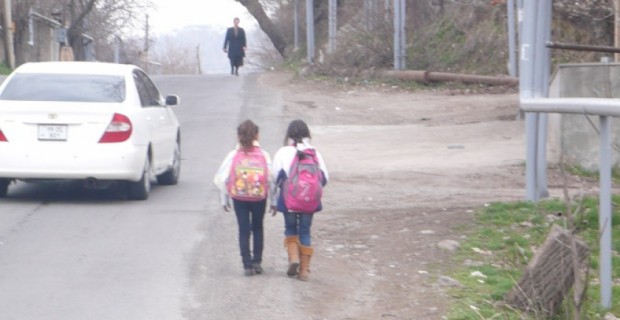
Hundreds of students living in the outer sections of Armenia’s Garni village have to walk three kilometers every day to get to school and three to return home.
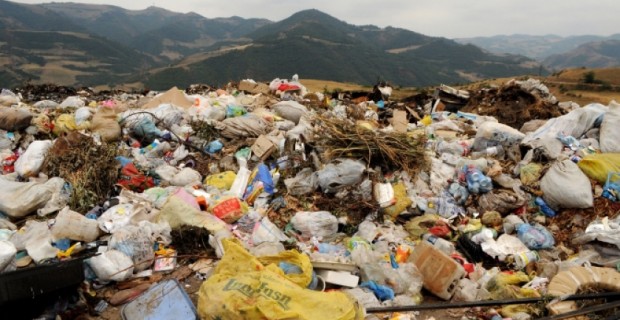
Provincial authorities should be working with local communities to see that financial and other resources are effectively and legally used to tackle the garbage collection issue.

Thus, the public at large must demand that both parties of the grant equation come clean and provide comprehensive information on such programs. The government of Armenia must also be obligated to publish comprehensive program reports starting from the point when it argues in favor of financing for any sector
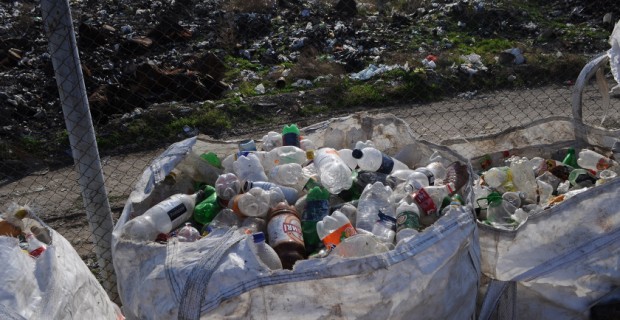
15 communities in Armenia’s Ararat Province have been operating a collective garbage collection service for the past five years.

At the October 29 Armenian government cabinet session, a proposal by independent MP Edmond Maroukyan to cancel obtaining fines from citizens by extra-judicial means and to cut fines by a factor of two was thrown out.
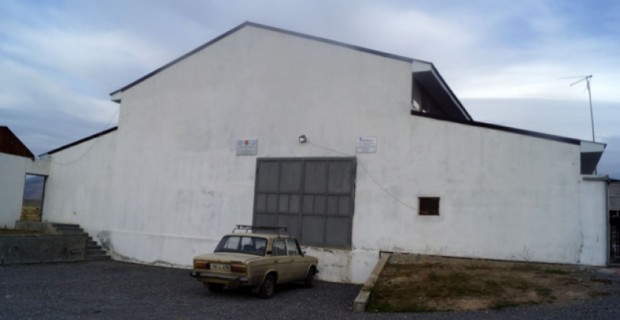
The FAO abattoir project was designed to prevent contagious diseases and to ensure the safety of meat and meat products. The first step was to stop the slaughtering of animals at home and along the roadside.
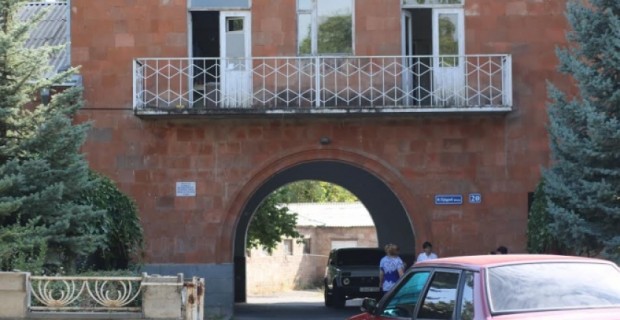
The Garni Health Center services Garni and four neighboring villages – Geghadir, Hatsavan, Goght and Geghard– with a population of some 100,000. This doesn’t include visitors and those residing in summer homes.
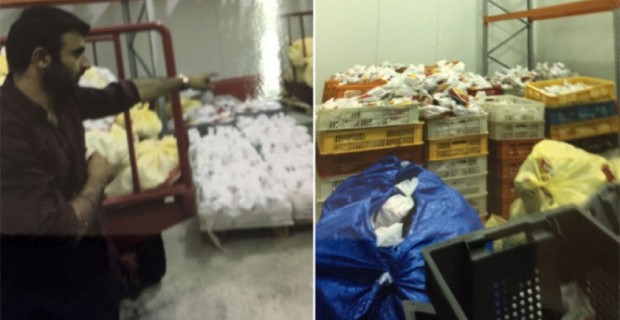
Unfit for consumption poultry also winds up in Yerevan grocery stores

According to the online auction listing, Bouniatyan was the winner and that same day the entire purchase amountof 7.9 million dram was transferred to the Compulsory Enforcement Service’s account
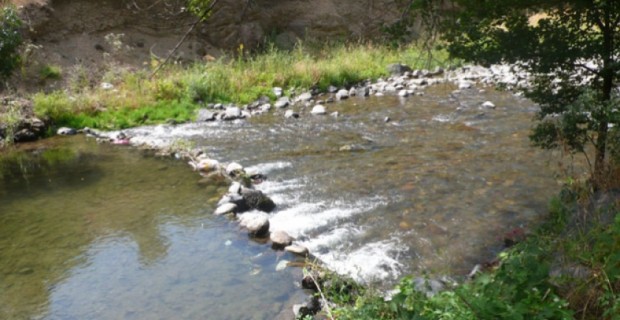
Water readings taken in July and August have shown that there isn’t enough water flowing in the Azad River to build the World Bank financed gravity fed Kaghtsrashen irrigation project.
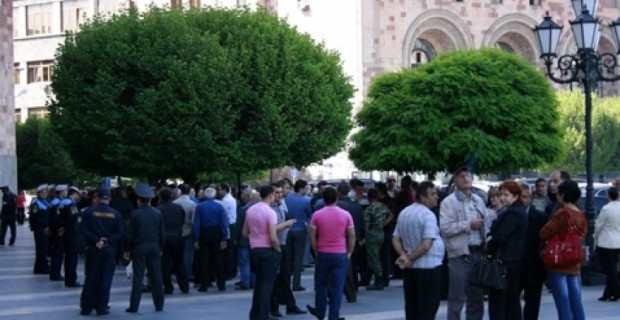
The World Bank report states that a large portion of Nairit’s resources have deteriorated (wear and tear).
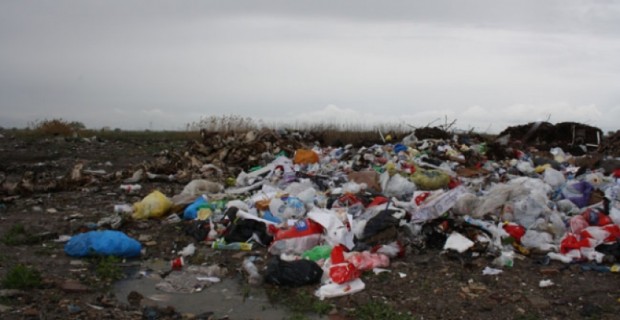
To improve household waste management in Armenia’s Kotayk Province and the town of Sevan, the European Bank for Reconstruction and Development (ERBD) has issued Armenia a financing package totaling 8.07 million Euros.
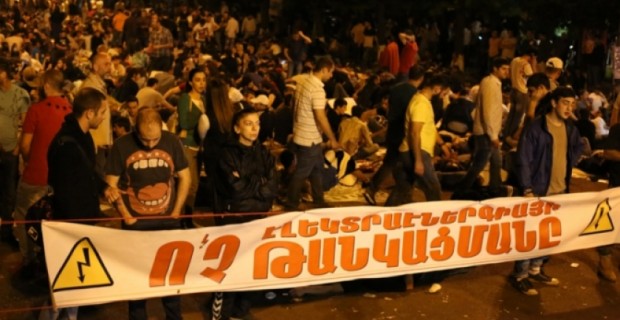
President Sargsyan has no doubts that the rate hike is justified. The World Bank has already studied the sector and has made suggestions to reform the sector to the Armenian government; all designed to guarantee the adequate and needed supply of electricity. Otherwise, more brownouts are on the way.
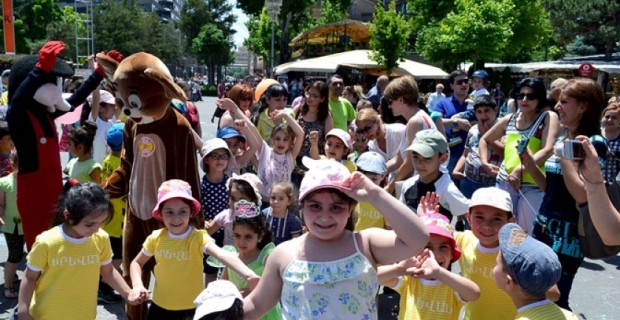
One month ago Save the Children published its 16th annual State of the World’s Mothers report. Using the latest data on women’s health, children’s health, educational attainment, economic well- being and female participation, the report ranked 179 countries, showing where mothers and children fare best and where they face the greatest hardships.
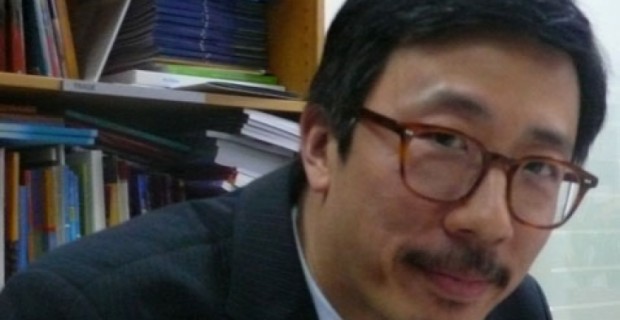
Winston Yu, Senior Water Resources Specialist at the World Bank, responds to questions from Hetq
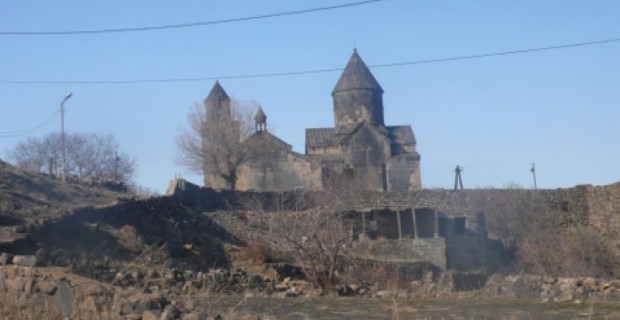
The Aragatzotn village of Tegher, spread across the slope of a mountain, is only visible after traversing the last turn of a winding road.

Environmental groups in Armenia are in an uproar over a July 2014 government decision they say will allow a mining company to remove and replant endangered flora species and thus circumvent Armenian domestic law and the country’s international obligations to protect and preserve such plants.
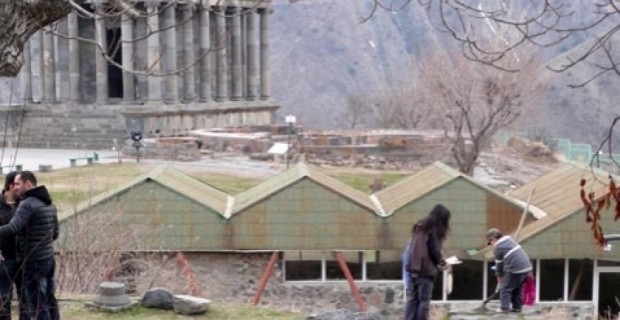
The Ministry of Culture to this day has done nothing to resolve existing problems at the Garni historical and cultural museum reserve
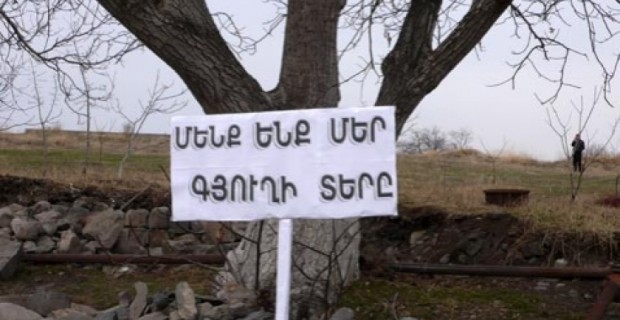
Scores of youth today headed to Armenia’s historical Garni site to remove construction material previously delivered in order to build a café.
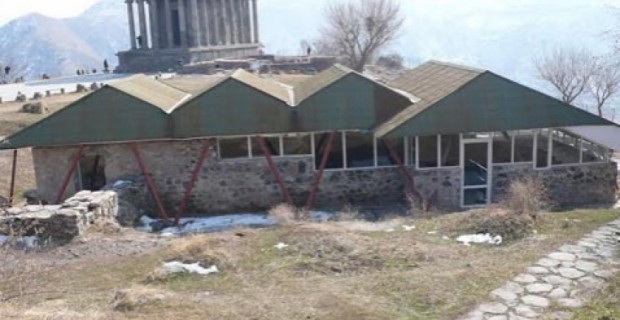
Today, the Garni Historical and Cultural Museum Reserve (that includes the Hellenistic-style temple, a bath complex, a royal summer palace, and a 9th c. church and cemetery) can only be considered a sore spot in the country’s stated drive to promote tourism.

In letters to the president of Armenia and other high-ranking officials, the Armenian national who's already served 3 years behind bars in Kiev's Lukyanivska Prison describes the legal violations, torture, and cruel and inhuman treatment he and his relatives have experienced.

The murder occurred in Kiev in 2010, outside the 4 room furniture store founded by the two businessmen in 2008, after which the dual citizen of Armenia and Russia was arrested in Russia (Aloyan is his name as it appears in his Armenian passport; after getting married, he adopted his wife's surname, Suslov).

The fourth estate is experiencing a similar crisis like the other three branches of government.
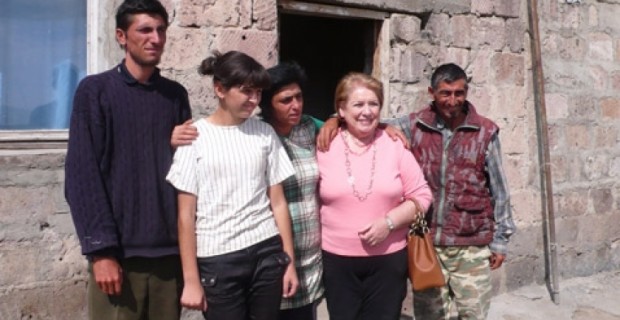
Elmira and her family lead a hardscrabble life in the Armavir village of Shenik.

After balancing the monetary amount of insult and slander suits, decisions by the courts to freeze property and financial assets became new challenges for news outlets and reporters.

Last month, when Minister Poghosyan visited the site, she wasn’t even aware that the monument was under the jurisdiction of her ministry.
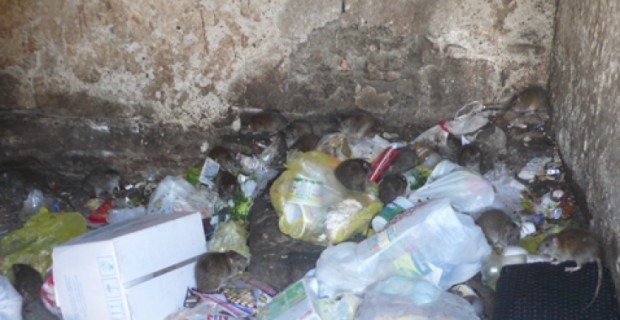
These photos were taken within the building located at 17 Nansen Street in the 1st Nor Nork district. While the building supposedly does have a “management committee”, the accompanying photos prove that it exists in name only.
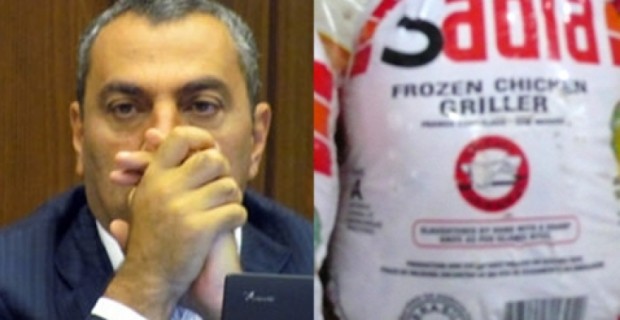
A February 6, 2013 decision handed down by the RA Agriculture Ministry’s Food Safety Service (FSS) was supposed to have led to testing for genetically modified organisms (GMOs) and overall food safety in seven brands of frozen chicken and chicken parts imported to Armenia.
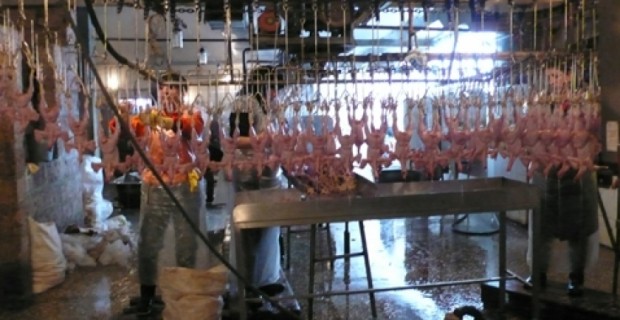
Laboratory testing of chickens sold under the "Getamej" brand revealed higher than accepted levels of salmonella. The tests were conducted at the RA Ministry of Agriculture's Food Safety Inspectorate's laboratory. The results were published on February 14.
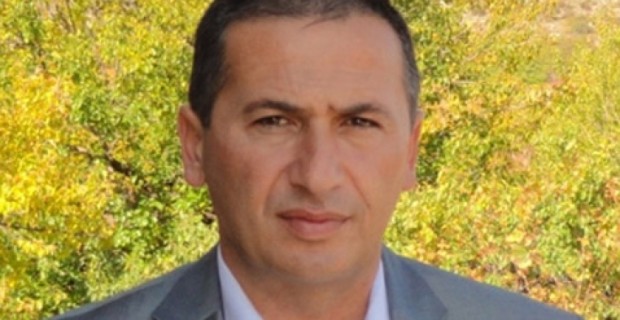
It seems that Asryan and his wife Gayaneh somehow convinced nine village residents to each take out a $1,000 loan from the ACBA-Credit Agricole Bank and to transfer the money to the. Asryan was supposed to pay back the loans but he hasn't.

Due to this policy, the print media is free today but it has sacrificed its influence in return. National papers have regressed to becoming regional ones due to their limited circulation, mostly being sold in the capital.

2012 is an election year and the authorities have promised democratic elections; something that has never occurred. No one really expects this to happen. Everyone knows that elections give rise to increased incidents of violence and restrictions placed on reporters doing their jobs.
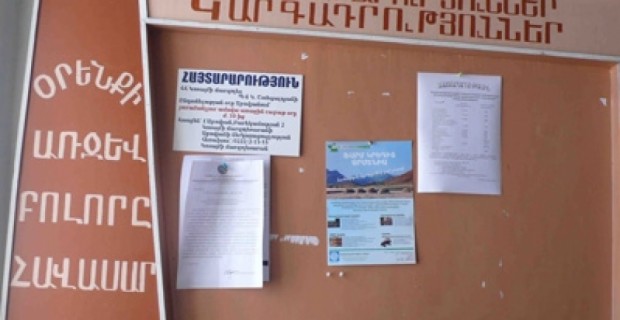
But we failed in our most important task of all – to change the mentality of local community leaders. We failed to impress upon them the fact that they are obligated, by law, to publicly display the decisions taken by local governing bodies. The same law holds true for national state bodies - the government, parliament, the courts, etc.

Starting in January, 2012, the number of slander and insult cases filed against news outlets and reporters began to decrease. In our opinion, a main factor impacting this process was the RA Constitutional Court’s Decision 997 of November 15 of last year. The courts appear to have begun balancing the scales of justice.
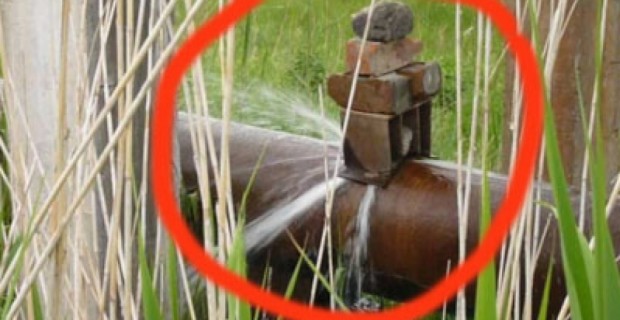
Company management also did not agree with the observation of the prosecutor that “periodic inspections and monitoring” could have prevented the Nubarashen poisoning incident.
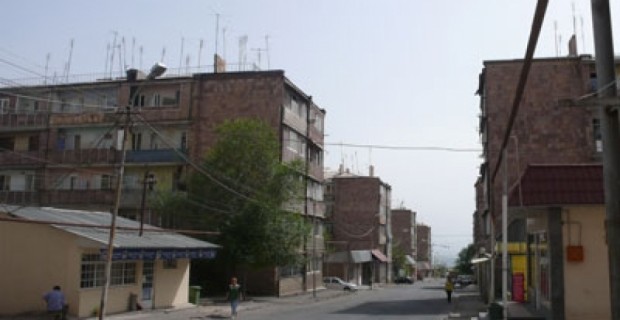
There was a case of widespread water poisoning on June 1-3 in 2011 in the 11th neighbourhood of Nubarashen in Yerevan. According to the official statement, 87 individuals received treatment for intestinal infections at the Nork Infectious Diseases Clinic.

In the case of Piruzyan v. Armenia, on June 26, 2012, the European Court of Human Rights (ECHR) found in favor of the plaintiff and ordered Armenia to pay Piruzyan 8,000 euros in pecuniary damages.
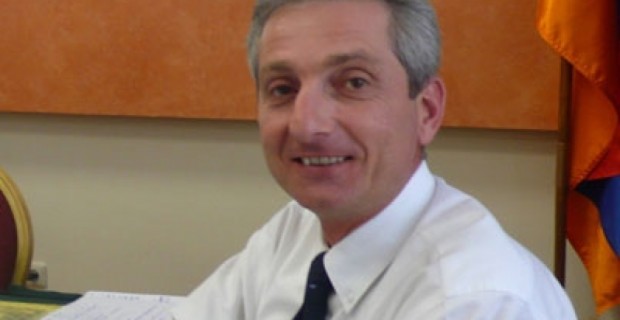
In this case, the Cassation Court included some concepts by saying that even if the reprinting of the information was done in a diligent manner; this doesn’t mean that the news outlet automatically is free of responsibility.
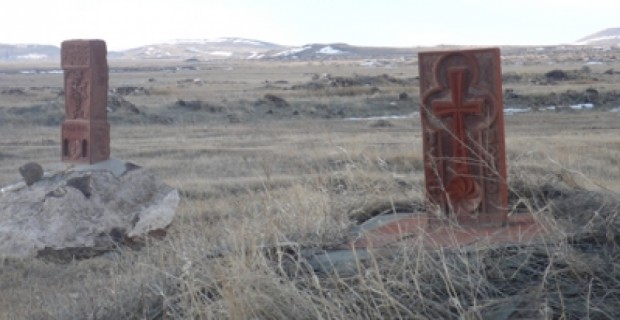
The road to Gyumri, Armenia’s second city, passes through a repetitive set dry and empty of fields. For a passenger like me, it gets quite boring. As a diversion, I try and read the inscriptions on the roadside monuments set up here and there to commemorate those who have died due to traffic accidents.

School Principal Hovhannisyan laments the fact that many villagers now seek their fortunes in the mining towns of Kajaran and Kapan.

Apparently, the description in the website worried Judge Hovakimyan for he started to "correct" the court documents. But he still wasn't sure if the trial had taken place in "closed session" or not.
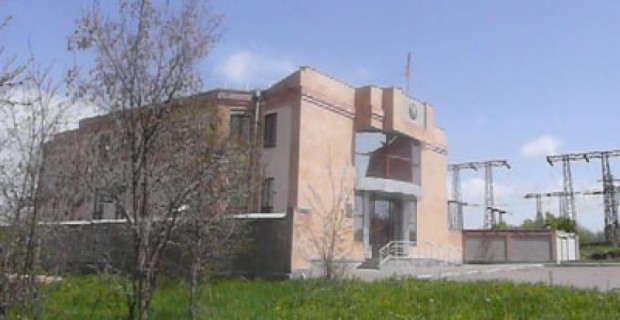
The doors of the Charentsavan Municipal Court have essentially remained shut after Karen Poghosyan, a judge with the Kotayk Regional Court, was stripped of his powers in October 2010 by the Council of Justice.
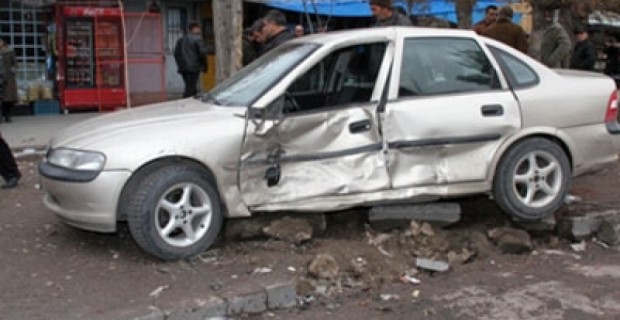
In his suit, Melikyan is demanding 550 million in "moral compensation" and a whopping 45 million for incurred funeral costs.
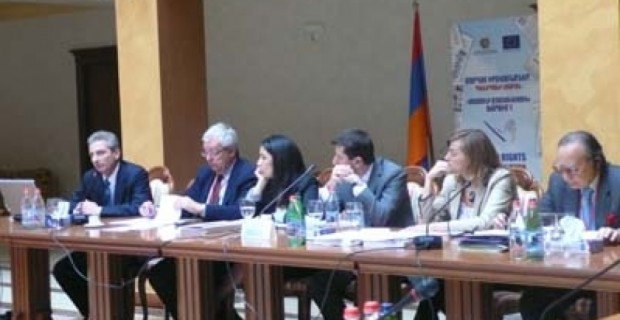
European specialists have advised media outlets in Armenia to follow ethical norms, i.e., self-regulation, while the courts should give primacy to the public interest’s right to know; as is the case in most of Europe.

How the courts come down on moral compensation will decide The planned for changes to Armenian law designed to decriminalize slander charges has been a demand pushed by the European Union for the past ten years. When it comes to the manifesting the freedom ...
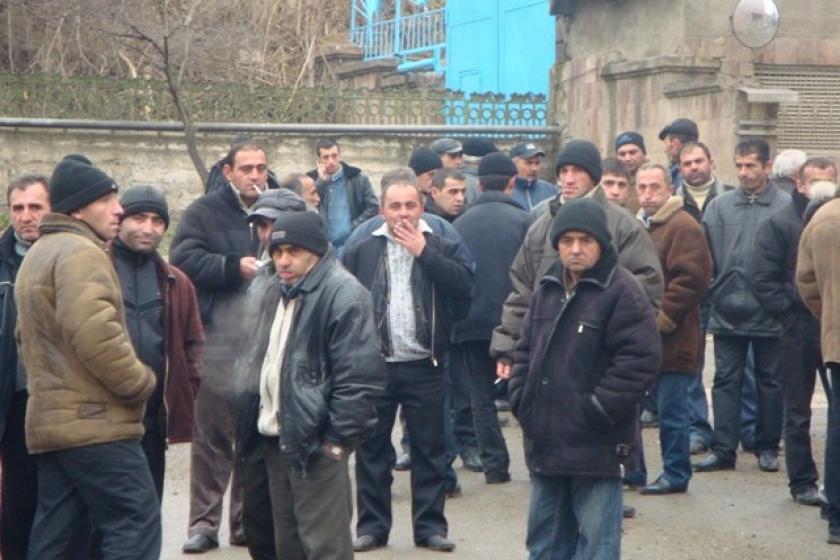
On January 26, 2011, Deno Gold Mining CJSC announced the dismissal of Executive Director Robert Faletta. This decision taken by Dundee Precious Metals (DPM), the Canadian parent company operating the ...
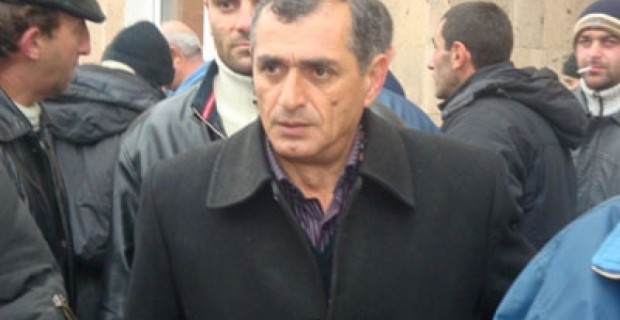
Deno Gold plays trump card in negotiations with government
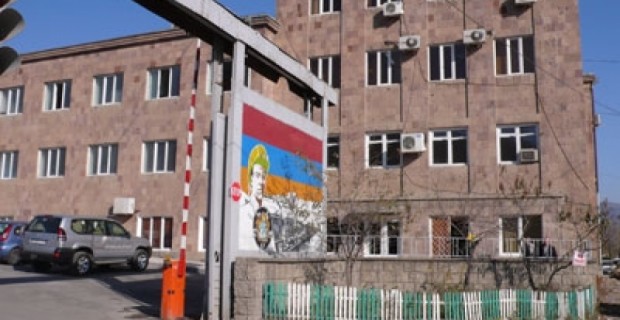
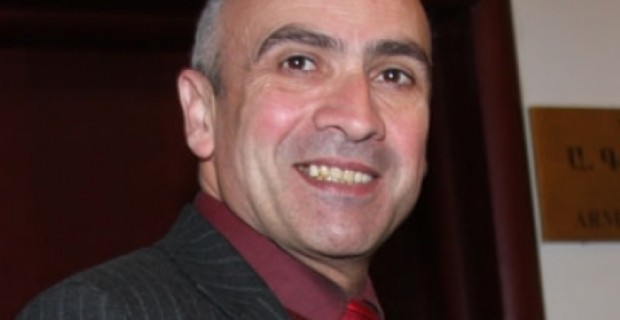
The judge, in his two page decision, enumerates the RoA legal code, RoA Constitution, Declaration of International Human Rights and other international norms and clauses that declare the right of a person’s dignity to be of absolute value.